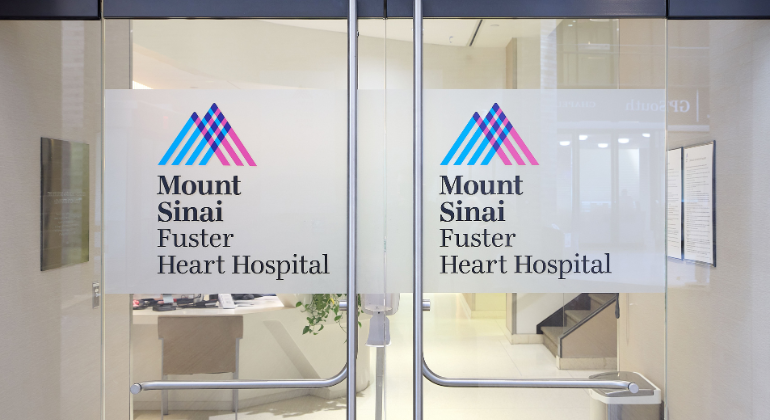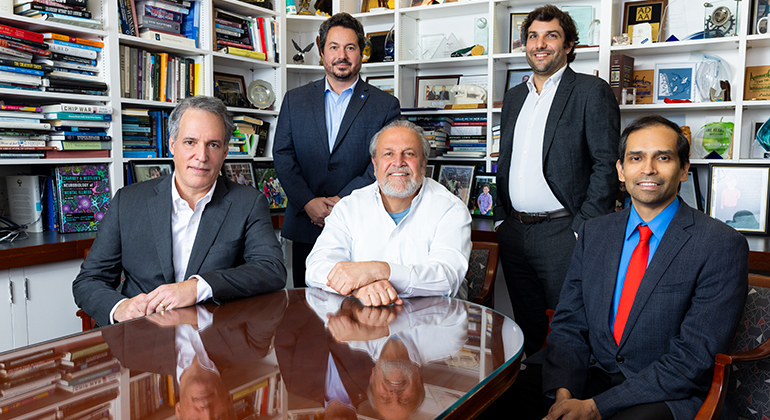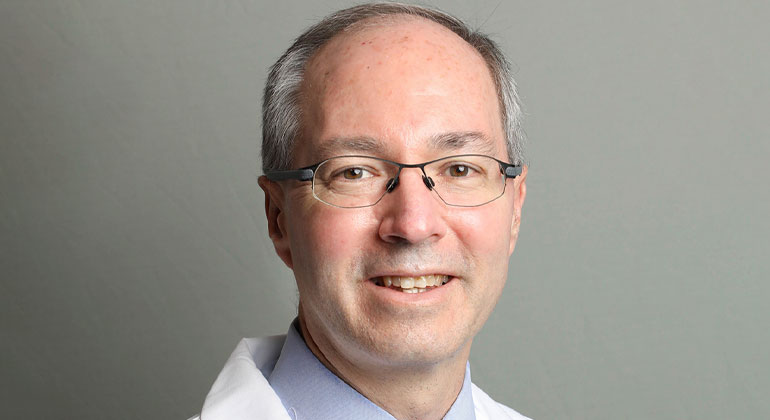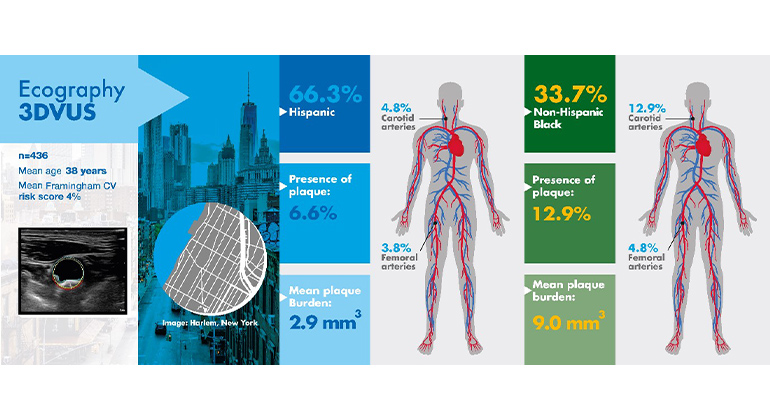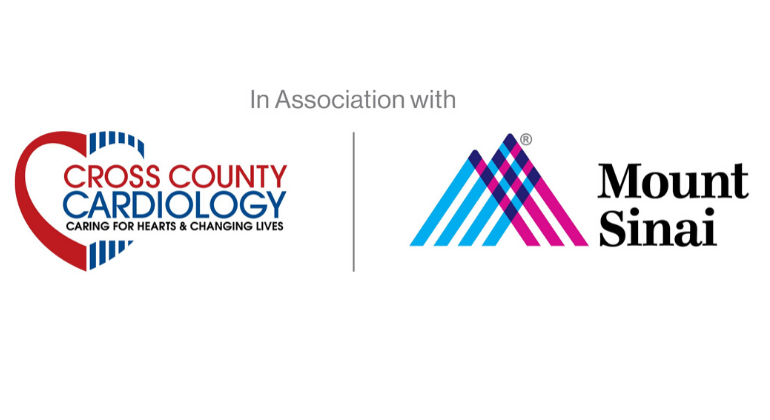The Mount Sinai Medical Center Hosts Second Annual New York Summit on Diabetes and Heart Disease
The Mount Sinai Medical Center is hosting the “Second Annual New York Symposium on Diabetes and Heart Disease,” featuring experts in cardiology, endocrinology, and public health to focus on much-needed education about the incidence of heart disease in people with diabetes.
Clinical studies now estimate that up to 80 percent of patients with diabetes will develop serious cardiovascular complications in their lifetime. Many doctors still treat diabetes as a chronic disease that can be controlled by managing blood sugar levels – often neglecting common and often deadly complications of the disease, like hypertension and high cholesterol. To raise awareness among clinicians about this issue, The Mount Sinai Medical Center is hosting the “Second Annual New York Symposium on Diabetes and Heart Disease,” featuring experts in cardiology, endocrinology, and public health to focus on much-needed education about the incidence of heart disease in people with diabetes.
Dr. Valentin Fuster, Physician-in-Chief, Director of Mount Sinai Heart, The Zena and Michael A. Weiner Cardiovascular Institute, and the Marie-Josée and Henry R. Kravis Center for Cardiovascular Health and Dr. Michael Farkouh, Associate Clinical Professor of Medicine in the Division of Cardiology at The Mount Sinai Medical Center will lead a discussion on how to address this international epidemic.
Prediabetes, diabetes and obesity have become epidemic around the world. In New York City alone, more than 800,000 people have been diagnosed with diabetes and it’s estimated that another 450,000 have diabetes and do not know it. Yet another million with abnormally high blood sugar levels qualify as pre-diabetic, putting them at high risk for serious heart disease. East Harlem, one of the communities Mount Sinai serves, has the highest rate of diabetes in New York City.
The “Second Annual Mount Sinai Summit on Diabetes and Heart Disease” will feature leading medical experts discussing the cardio-metabolic management of type 2 diabetes, heart disease, and other cardiovascular risk factors. Some of the topics to be discussed will include:
- The worldwide magnitude of epidemic diabetes and heart disease • An overview of the diabetes epidemic in New York City and novel community-based solutions,
- The optimal treatment of hypertension in people with diabetes
- The role of glycemic control in determining cardiovascular outcomes
- The role of bariatric surgery in the treatment of type 2 diabetes
- New methods of cardiovascular imaging in screening asymptomatic people with diabetes for heart disease.
Lectures will be followed by stimulating panel discussions among the experts followed by lively question and answer sessions with attendees.
Other Mount Sinai speakers include:
- Dr. Zachary Bloomgarden, Clinical Professor, Medicine, Endocrinology, Diabetes and Bone Disease
- Dr. George Dangas, Professor, Medicine
- Dr. Subhash Kini, Assistant Professor, Surgery
- Dr. Venkatesh Mani, Assistant Professor, Radiology
- Dr. Pedro Moreno, Professor, Medicine
- Dr. Robert Rosenson, Senior Faculty, Medicine
- Dr. Samin Sharma, Professor, Medicine
- Dr. Donald Smith, Assistant Professor, Medicine, Preventive Medicine
- Dr. Ronald Tamler, Assistant Professor, Medicine, Endocrinology, Diabetes and Bone Disease
- Dr. Rajesh Vedanthan, Assistant Professor, Medicine
Other speakers include:
- Dr. Paresh Dandona, Director, Diabetes and Endocrinology, Center of Western New York, Division of Endocrinology, Diabetes, and Metabolism, State University of New York
- Dr. Lawrence Leiter, Division of Endocrinology and Metabolism, St. Michael's Hospital
- Dr. Matt Longjohn, Senior Director of Chronic Disease Prevention, YMCA
- Dr. Franz Messerli, Director, Hypertension Program, St. Luke’s and Roosevelt Hospitals
- Dr. David Nathan, Director, Clinical Research Center and Diabetes Unit Medical Service, Massachusetts General Hospital
- Dr. Richard Nesto, Chair, Department of Cardiovascular Medicine, Lahey Clinic
- Dr. Vankeepuran Srinivas, Associate Professor of Clinical Medicine, Albert Einstein College of Medicine
About The Mount Sinai Medical Center
The Mount Sinai Medical Center encompasses both The Mount Sinai Hospital and Mount Sinai School of Medicine. Established in 1968, Mount Sinai School of Medicine is one of the leading medical schools in the United States. The Medical School is noted for innovation in education, biomedical research, clinical care delivery, and local and global community service. It has more than 3,400 faculty in 32 departments and 14 research institutes, and ranks among the top 20 medical schools both in National Institutes of Health (NIH) funding and by U.S. News & World Report.
The Mount Sinai Hospital, founded in 1852, is a 1,171-bed tertiary- and quaternary-care teaching facility and one of the nation’s oldest, largest and most-respected voluntary hospitals. In 2011, U.S. News & World Report ranked The Mount Sinai Hospital 16th on its elite Honor Roll of the nation’s top hospitals based on reputation, safety, and other patient-care factors. Of the top 20 hospitals in the United States, Mount Sinai is one of 12 integrated academic medical centers whose medical school ranks among the top 20 in NIH funding and US News & World Report and whose hospital is on the US News & World Report Honor Roll. Nearly 60,000 people were treated at Mount Sinai as inpatients last year, and approximately 560,000 outpatient visits took place.
For more information, visit http://www.mountsinai.org/.
Find Mount Sinai on:
Facebook: http://www.facebook.com/mountsinainyc
Twitter @mountsinainyc
YouTube: http://www.youtube.com/mountsinainy
About the Mount Sinai Health System
Mount Sinai Health System is one of the largest academic medical systems in the New York metro area, with 48,000 employees working across seven hospitals, more than 400 outpatient practices, more than 600 research and clinical labs, a school of nursing, and a leading school of medicine and graduate education. Mount Sinai advances health for all people, everywhere, by taking on the most complex health care challenges of our time—discovering and applying new scientific learning and knowledge; developing safer, more effective treatments; educating the next generation of medical leaders and innovators; and supporting local communities by delivering high-quality care to all who need it.
Through the integration of its hospitals, labs, and schools, Mount Sinai offers comprehensive health care solutions from birth through geriatrics, leveraging innovative approaches such as artificial intelligence and informatics while keeping patients’ medical and emotional needs at the center of all treatment. The Health System includes approximately 9,000 primary and specialty care physicians and 10 free-standing joint-venture centers throughout the five boroughs of New York City, Westchester, Long Island, and Florida. Hospitals within the System are consistently ranked by Newsweek’s® “The World’s Best Smart Hospitals, Best in State Hospitals, World Best Hospitals and Best Specialty Hospitals” and by U.S. News & World Report's® “Best Hospitals” and “Best Children’s Hospitals.” The Mount Sinai Hospital is on the U.S. News & World Report® “Best Hospitals” Honor Roll for 2025-2026.
For more information, visit https://www.mountsinai.org or find Mount Sinai on Facebook, Instagram, LinkedIn, X, and YouTube.

Valentin Fuster, MD, PhD, Receives Prestigious Award from City of Barcelona, Spain
Jan 23, 2023 View All Press Releases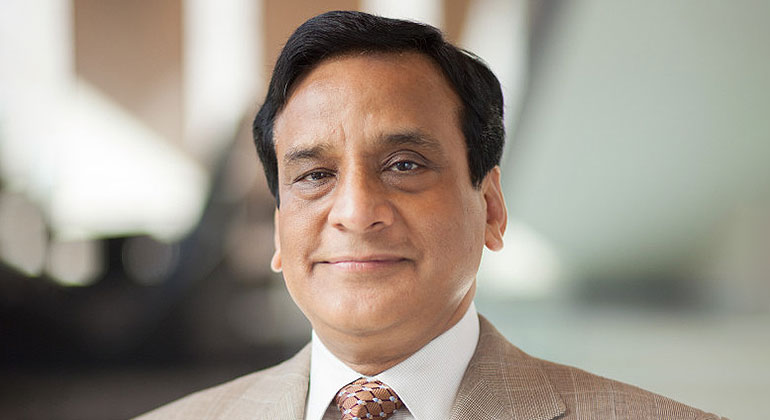
Samin Sharma, MD, Named Director of the Mount Sinai Cardiovascular Clinical Institute
Nov 28, 2022 View All Press Releases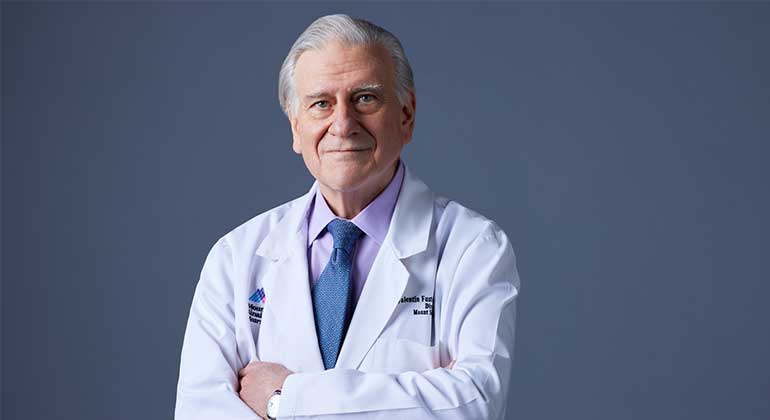
Valentin Fuster, MD, PhD, Named President of Mount Sinai Heart
Oct 18, 2022 View All Press Releases